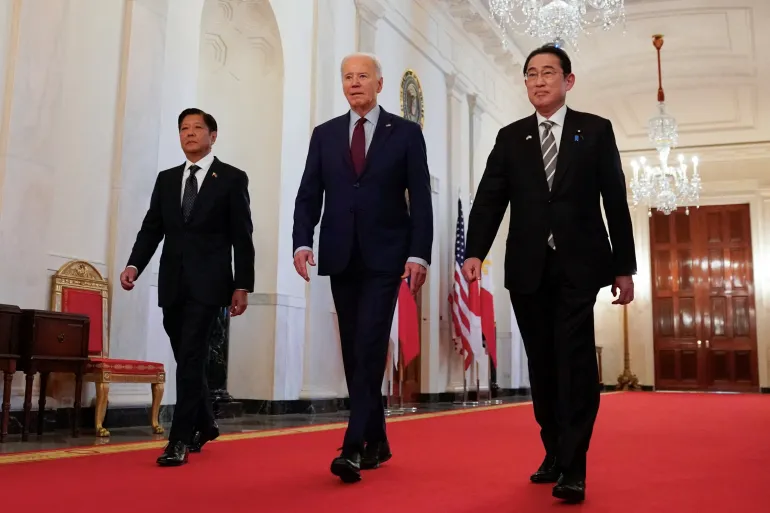The leaders of the United States, Japan and the Philippines have voiced “serious concern” over the recent moves by China in the disputed South China Sea which is brewing tensions.
Africa Today News, New York understands that in recent years, Beijing has stepped up its activities in the strategic waterway and tensions have risen, particularly with the Philippines, one of several Southeast Asian countries that claim the parts of the sea around their coasts.
In March, the President of the Philippines Ferdinand Marcos vowed that Manila would take countermeasures against China after a confrontation off Second Thomas Shoal injured Filipino soldiers and damaged vessels.
“We express our serious concerns about the People’s Republic of China’s [PRC] dangerous and aggressive behaviour in the South China Sea,” the three leaders said in a joint statement at the end of a first-ever summit between the three countries, which took place in Washington, DC.
Beijing claims almost the entire South China Sea under its so-called nine-dash line, which was rejected by an international court in 2016.
As well as the Philippines, Brunei, Malaysia and Vietnam also claim parts of the sea.
Read Also: Japan Jolted by Earthquake, No Tsunami Hazard Declared
The statement noted the “importance of respecting the sovereign rights of states within their exclusive economic zones [EEZ] consistent with international law, as reflected in the 1982 United Nations Convention on the Law of the Sea [UNCLOS]”.
It also reiterated the three state’s opposition to China’s “dangerous and coercive use of Coast Guard and maritime militia vessels in the South China Sea”.
Second Thomas Shoal, known as Ayungin in the Philippines, has been the site of multiple standoffs between Beijing and Manila in recent months, with China’s coastguard using water cannon against ships trying to resupply a contingent of Filipino sailors living aboard the deliberately grounded Sierra Madre.
The shoal lies about 200 kilometres (124 miles) from the western Philippine island of Palawan, placing it within the Philippines’ EEZ, according to UNCLOS.
It lies more than 1,000 kilometres (621 miles) from China’s southern Hainan island.

